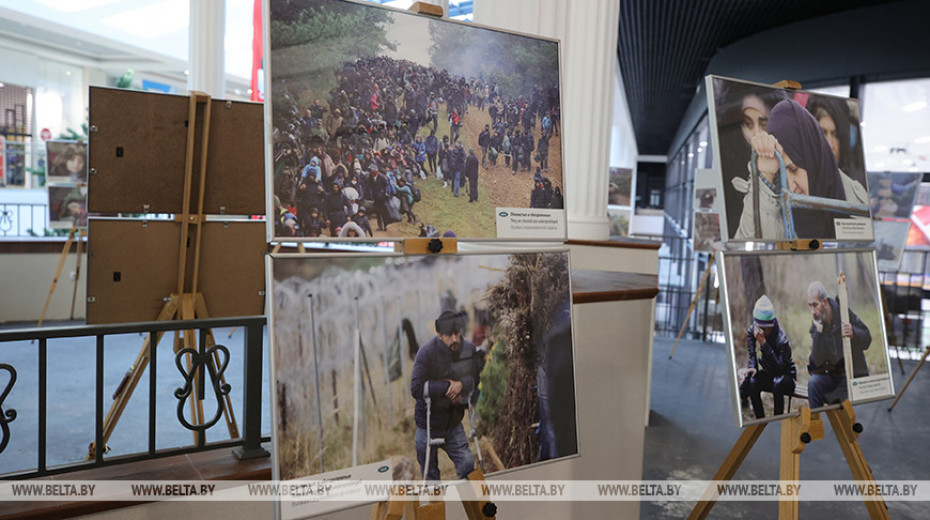
The exhibition "The Border Between Life and Death" opened in Grodno on 18 April, BelTA has learned.
"Grodno is really a special place. This is the region where everything happened. People living in Grodno Oblast do not require additional explanations because they were witnesses of those events. Doctors in Grodno hospitals performed operations, treated migrants, delivered babies. The police, the Emergencies Ministry, social workers, and the Red Cross were involved in the humanitarian effort. Grodno Oblast together with the whole country helped refugees. But it was Grodno Oblast that was on the forefront,” BelTA Director General Irina Akulovich told the media.
These photos are evidence of everything that really happened, Irina Akulovich said. "You can say a lot of words or you can capture things through the lens of a camera. The photos feature the eyes of children and mothers, pain, human tragedy. The horror of a real war against humanity, against a human being... We cannot allow people to forget about it and move on. This must not be forgotten. We want people to remember. Each of us can contribute and make the world a better place. Remembering such stories, everyone should think about how to change it. This is what the head of state talks about," Irina Akulovich said.
Sections of the exhibition tell about one day in the life of a refugee camp, show the face of European democracy, deceived and disadvantaged people, “European values” in the eyes of children and the graciousness of the Belarusian military. One of BelTA's photojournalists, who worked on the Belarusian-Polish border back then was Leonid Shcheglov. He called the experience of working on the border then as colossal. Passing by the rows of photos, Leonid Shcheglov recalled which of them he made. Stopping at a photo of a pregnant woman by the bonfire, he said: "I remember this pregnant woman. She immediately caught my eye. She gave birth in a maternity hospital in Grodno. Pictures of children, of course, also evoke great emotions.”
"Thousands of people were in dire need. It is difficult to see such massive suffering of people. We had to help them quickly. It is good that we have the photos that captured that story so that we can once again look at and impartially evaluate those events. The head of state visited the refugee camp. He followed the development of events from the first days, gave instructions, and we immediately fulfilled them. No one stood aside saying ‘it's none of my business'," Assistant to the President - Inspector for Grodno Oblast Yuri Karayev added.
"The exhibition evokes a lot of emotions. Those events happened recently. This is the true face of Western democracy," said Aleksandr Rodionov, a visitor to the exhibition.
Zinaida, a resident of Grodno, cannot hold back her emotions either. "You look at the photos and your heart sinks. It is very painful to see these photos now and revisit those events that we followed with bated breath," the woman said.
The photo exhibition has already been on display at the Mikhail Savitsky Art Gallery, Minsk National Airport, railway stations in Minsk and Brest.